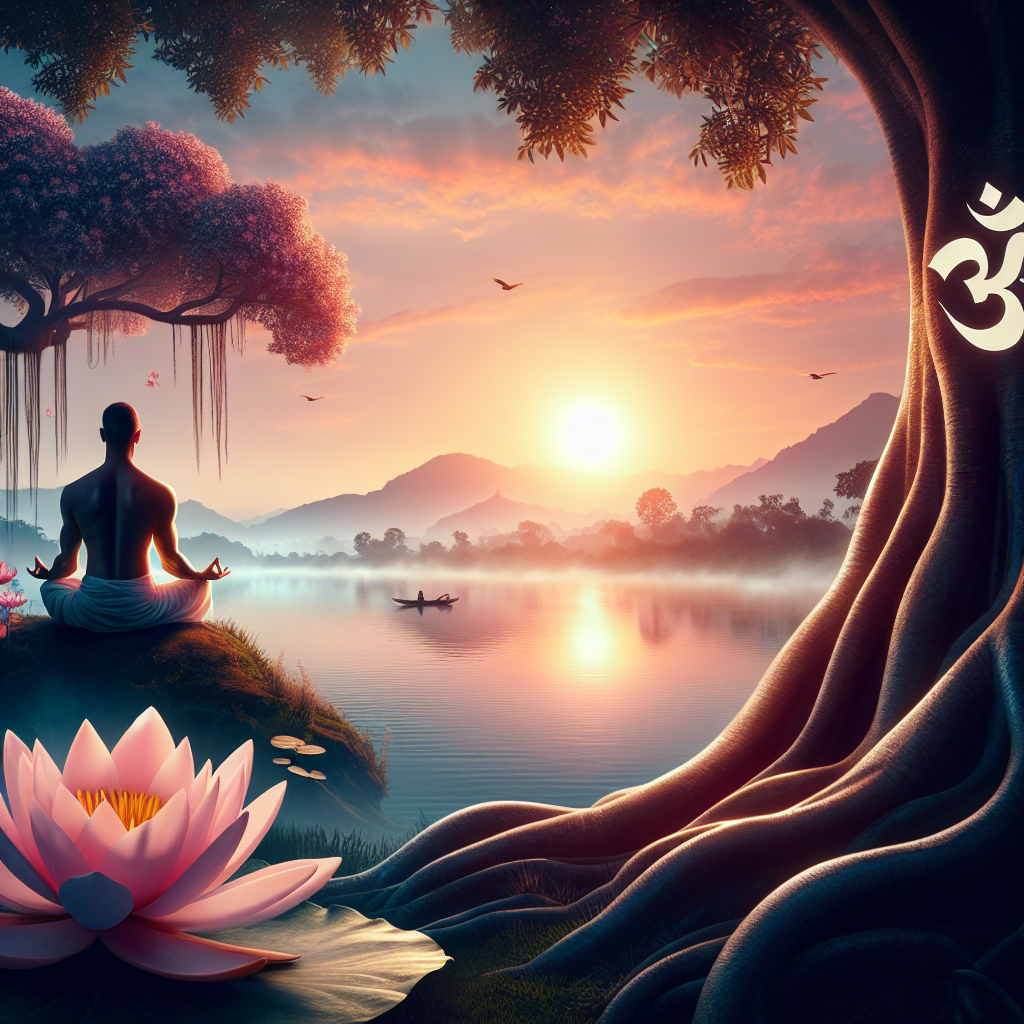meditation has been an integral practice in Hinduism for centuries, with its roots tracing back to ancient scriptures and texts. The power of meditation in Hinduism is not only to quiet the mind and cultivate inner peace, but also to connect with the divine and tap into a higher state of consciousness. In this article, we will explore the spiritual significance of meditation in Hinduism and how it can transform one’s spiritual journey.
Meditation in Hinduism is often seen as a way to quiet the mind and focus on the present moment. It is a practice that involves sitting in a quiet space, closing the eyes, and directing the mind inward. Through meditation, one can experience a sense of calm and clarity, letting go of the distractions of the outside world and tapping into a deeper sense of self-awareness.
One of the key aspects of meditation in Hinduism is the concept of dhyana, which is often translated as “meditation” or “contemplation.” Dhyana is considered to be one of the eight limbs of yoga, as outlined in the Yoga Sutras of Patanjali. It is a practice that involves deep concentration and focus, allowing the practitioner to transcend the physical world and connect with the divine within.
In Hinduism, meditation is not just a mental exercise, but a way to tap into the spiritual energy that resides within each individual. By quieting the mind and turning inward, one can access the higher realms of consciousness and connect with the divine energy that permeates the universe. This connection can lead to a deeper understanding of the self and the world around us, as well as a sense of unity with the greater cosmic forces at play.
The spiritual significance of meditation in Hinduism is profound, as it is believed to be a powerful tool for self-discovery and transformation. Through regular meditation practice, one can cultivate a sense of inner peace and harmony, as well as develop a greater sense of compassion and empathy towards others. Meditation can also help to cultivate qualities such as patience, resilience, and equanimity, which are essential for navigating the ups and downs of life.
Furthermore, meditation in Hinduism is seen as a way to purify the mind and body, allowing one to release negative energy and emotions that may be holding them back. By sitting in stillness and silence, one can observe their thoughts and feelings without judgment, and ultimately let go of the attachments and desires that cause suffering. This process of purification can lead to a greater sense of clarity and freedom, as one learns to detach from the ego and identify with the true self.
In addition to its spiritual significance, meditation in Hinduism is also believed to have a number of health benefits. Studies have shown that regular meditation practice can reduce stress, anxiety, and depression, as well as improve focus, concentration, and overall well-being. By calming the mind and relaxing the body, meditation can help to lower blood pressure, boost the immune system, and promote a sense of overall balance and harmony.
FAQs:
Q: How long should I meditate for in order to experience the benefits?
A: The length of time for meditation can vary depending on the individual, but it is generally recommended to start with a few minutes each day and gradually increase the duration as you become more comfortable with the practice. Some people find that meditating for 20-30 minutes each day is sufficient to experience the benefits, while others may prefer longer or shorter sessions.
Q: Do I need any specific equipment or tools to meditate?
A: All you really need to meditate is a quiet space and a comfortable place to sit. Some people choose to use a meditation cushion or bolster to support their posture, while others may prefer to meditate while lying down. It can also be helpful to use a timer or meditation app to track the duration of your session.
Q: Can anyone practice meditation, regardless of their religious beliefs?
A: Yes, meditation is a universal practice that can be beneficial for people of all faiths and backgrounds. While meditation is deeply rooted in Hinduism and other spiritual traditions, it is ultimately a secular practice that can be adapted to suit individual beliefs and preferences. As long as you approach meditation with an open mind and a willingness to explore your inner world, you can experience the many benefits that it has to offer.
Q: What is the best time of day to meditate?
A: The best time of day to meditate can vary depending on the individual, but many people find that meditating in the early morning or evening is most beneficial. Meditating first thing in the morning can help to set a positive tone for the day ahead, while meditating in the evening can help to unwind and relax after a long day. Ultimately, the best time to meditate is whenever you can find a quiet moment to sit and practice.




Leave A Comment